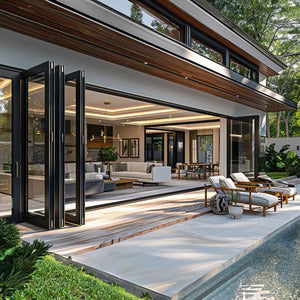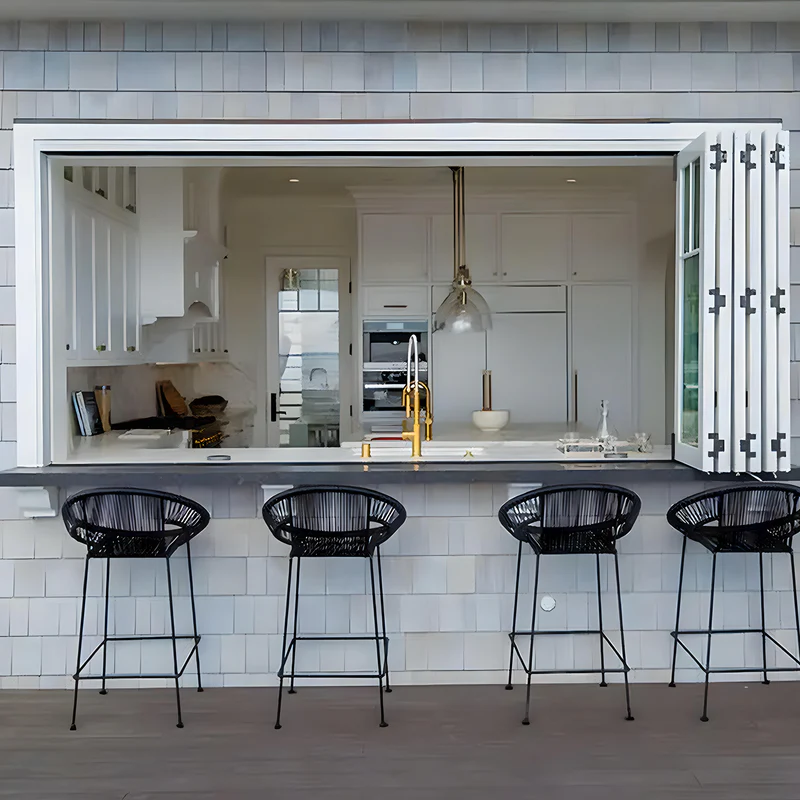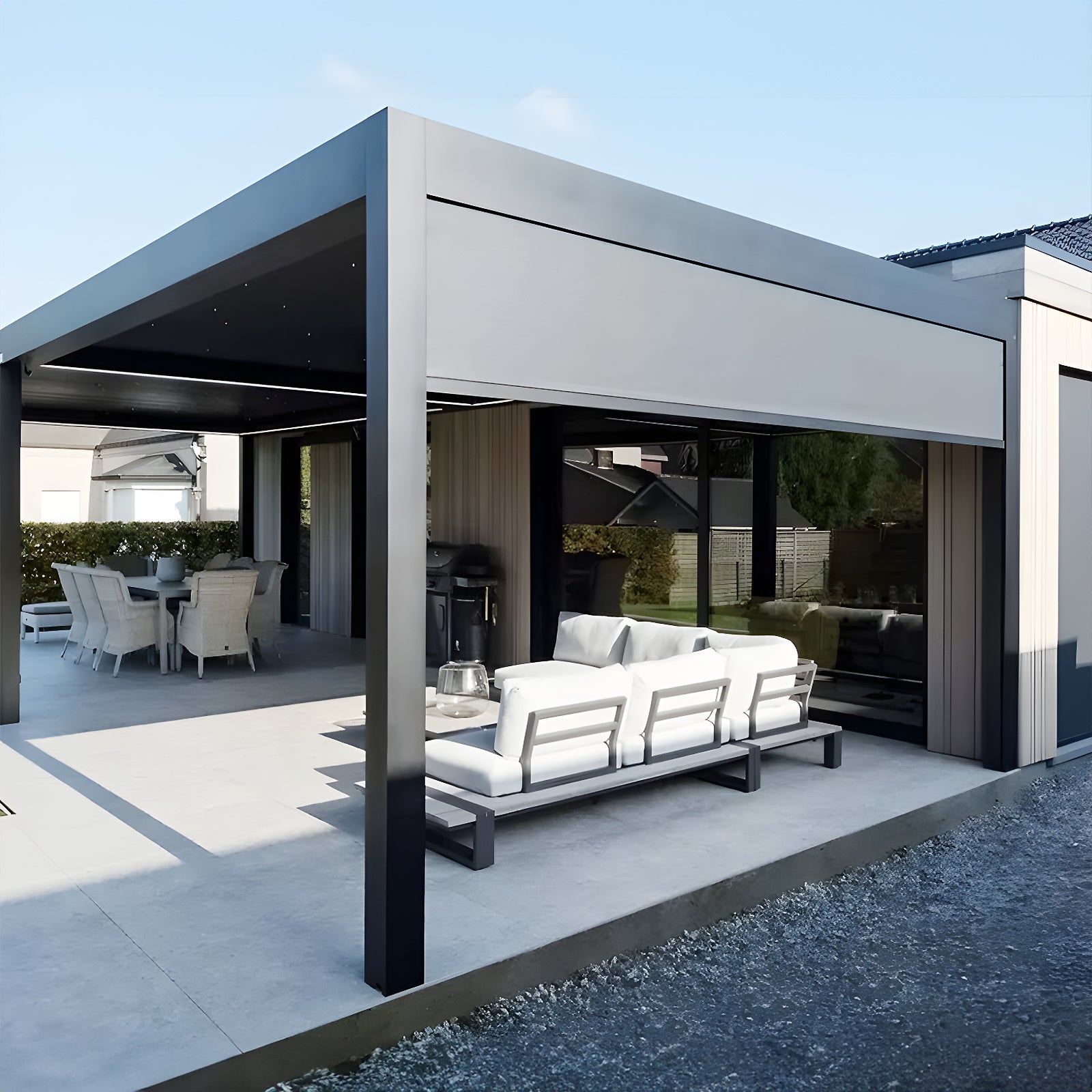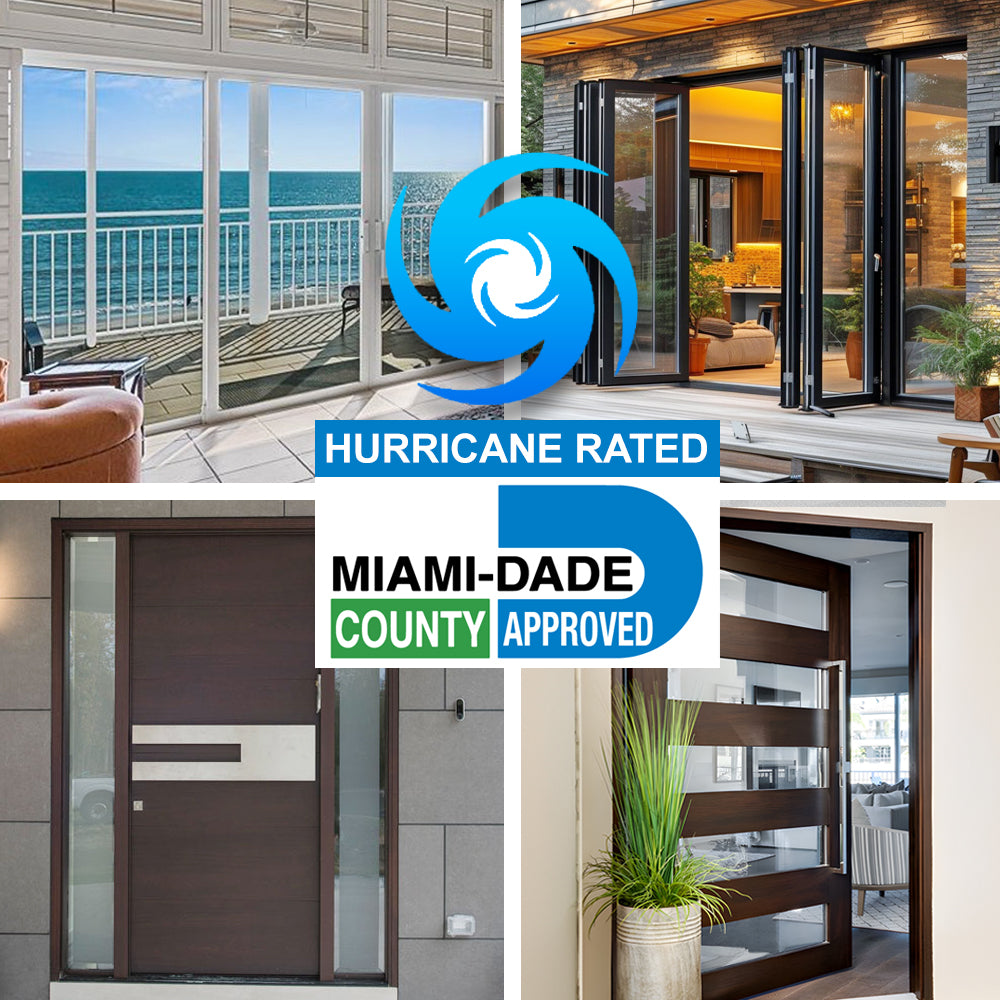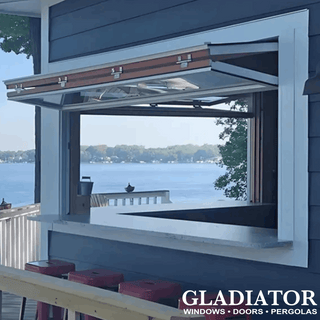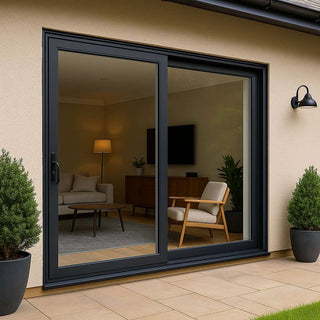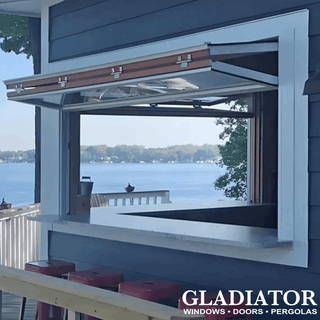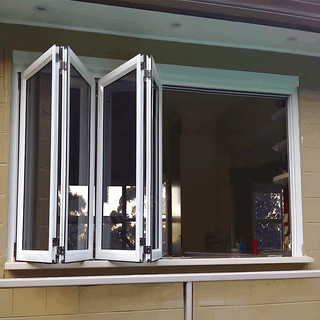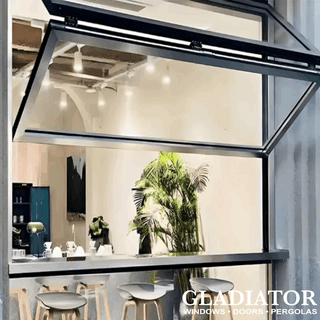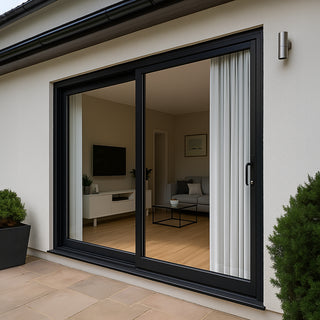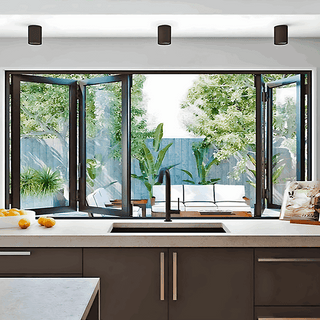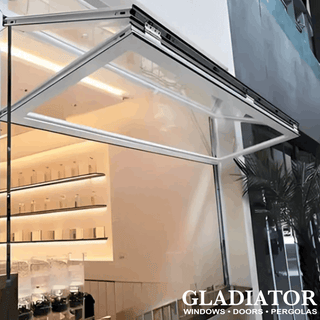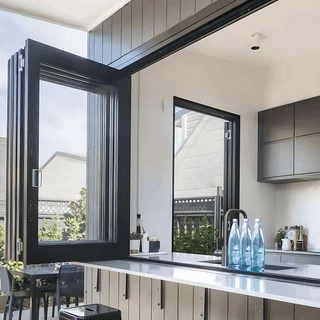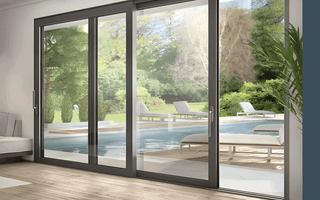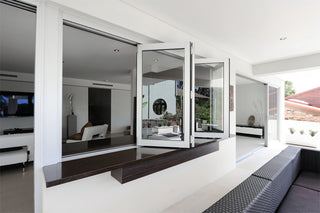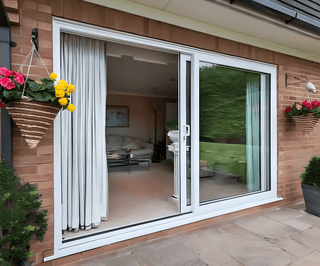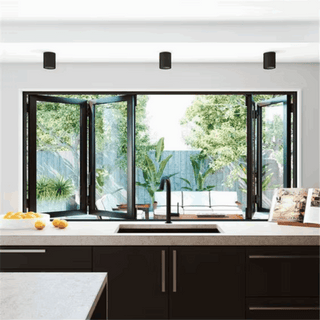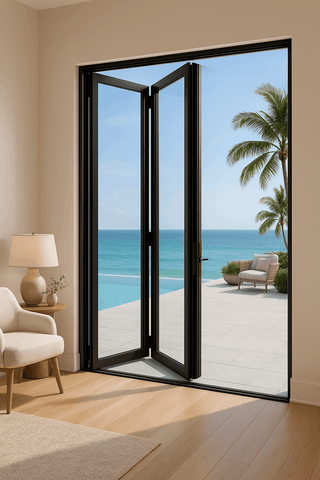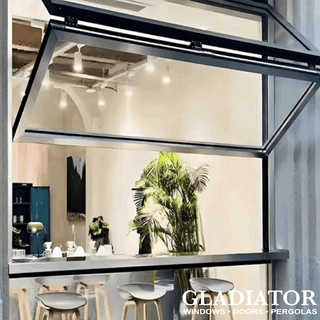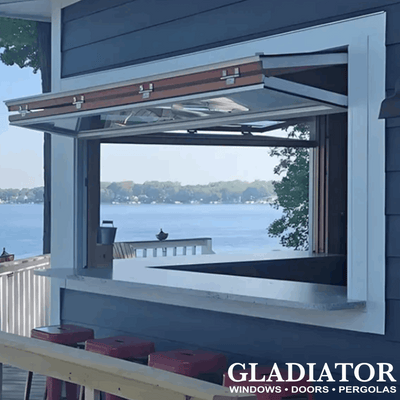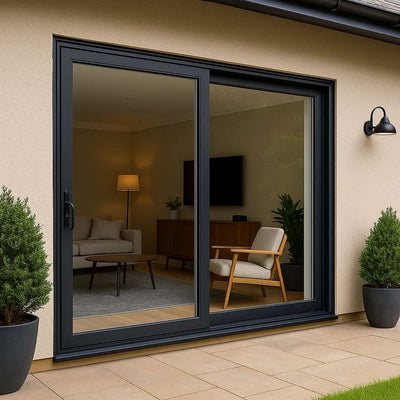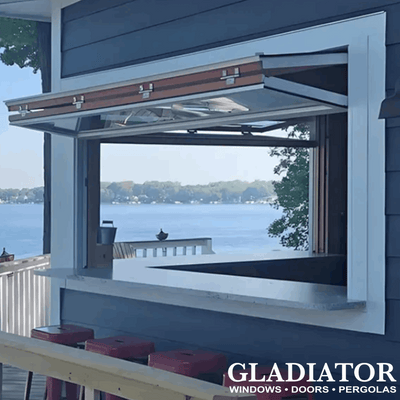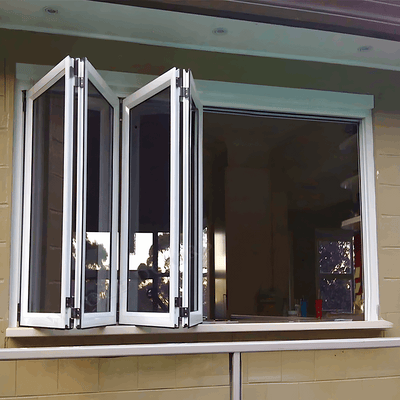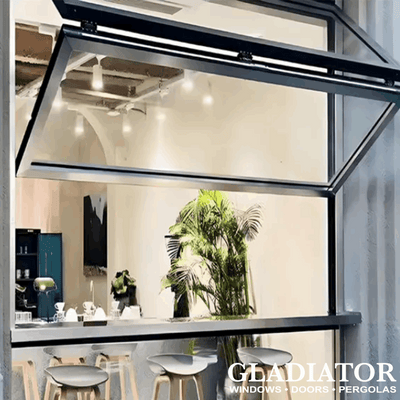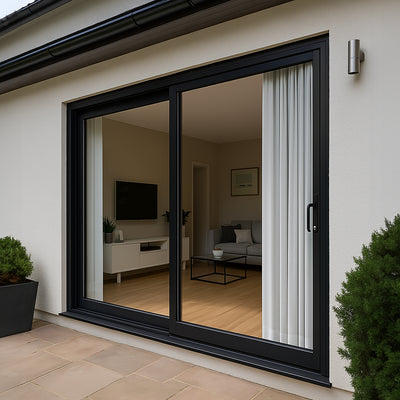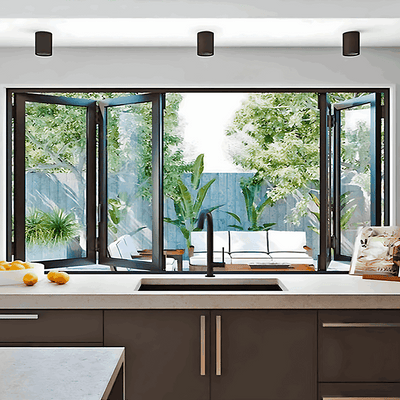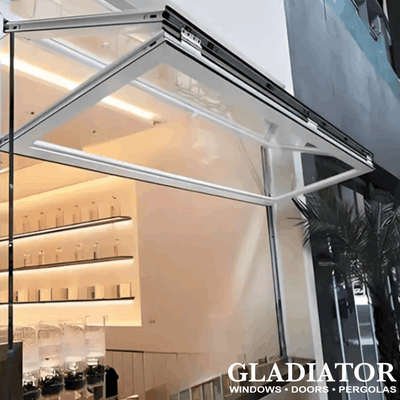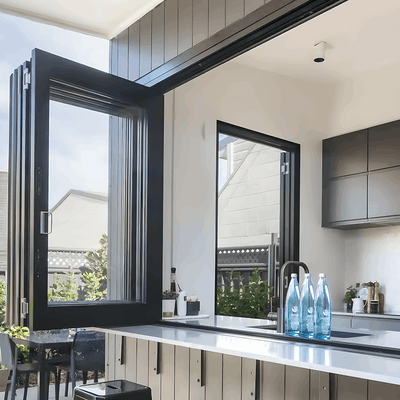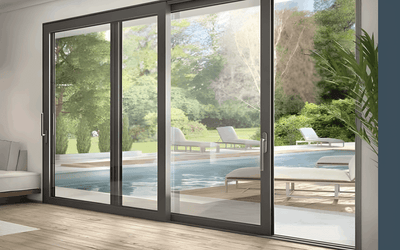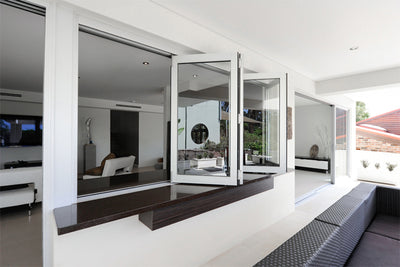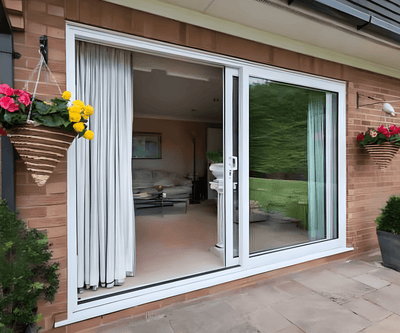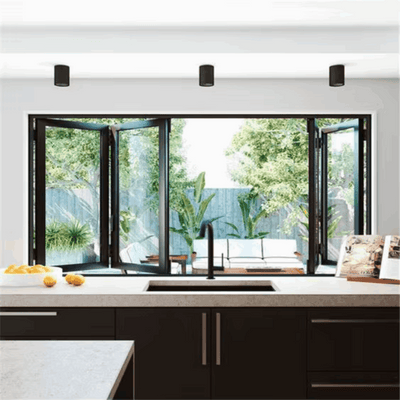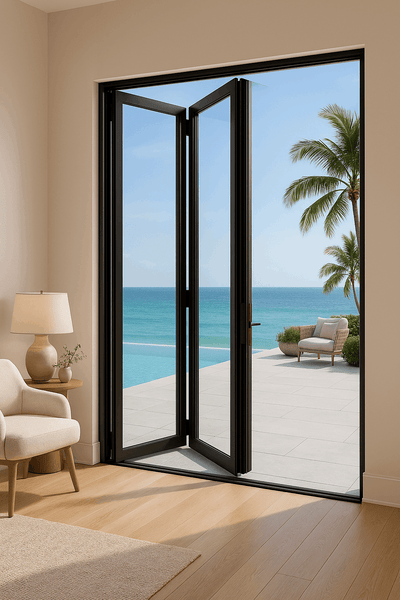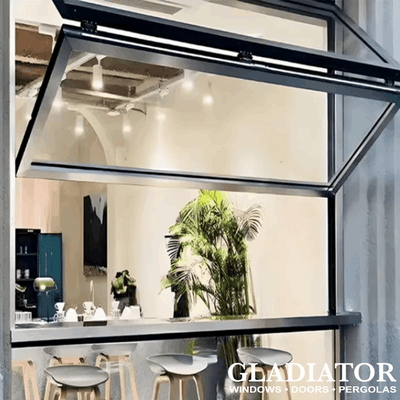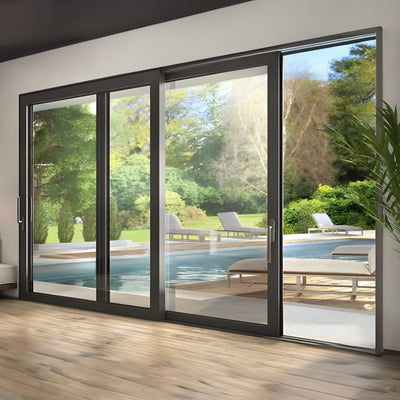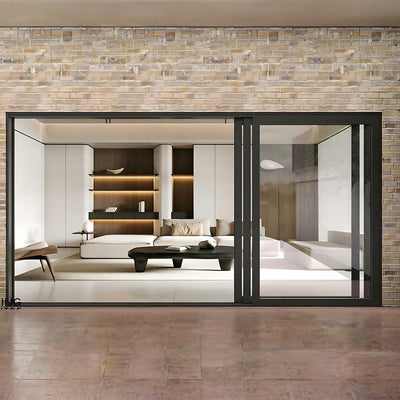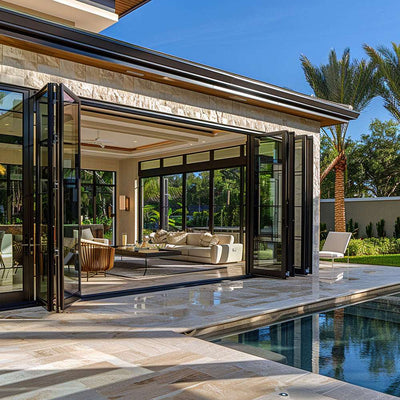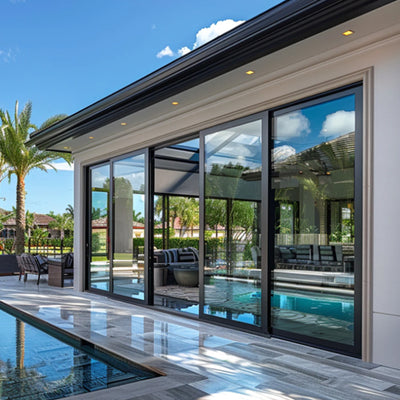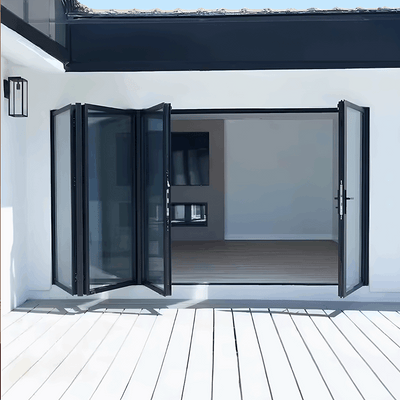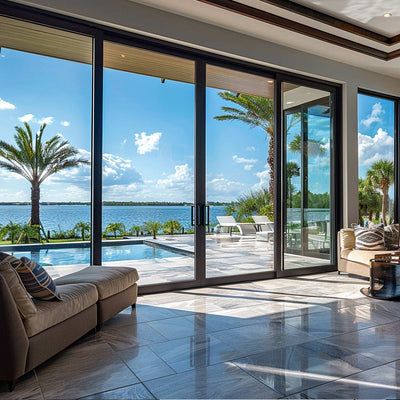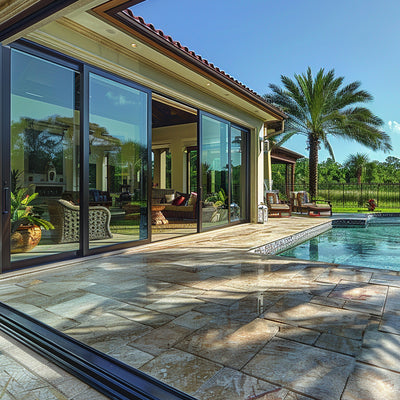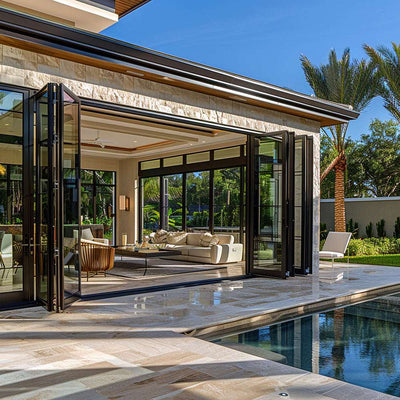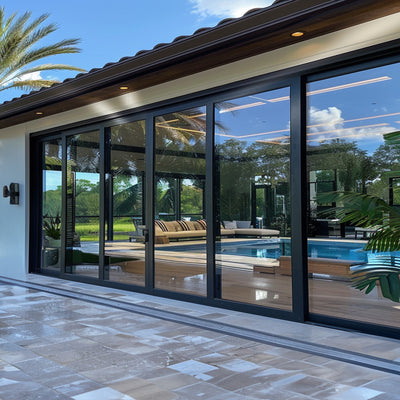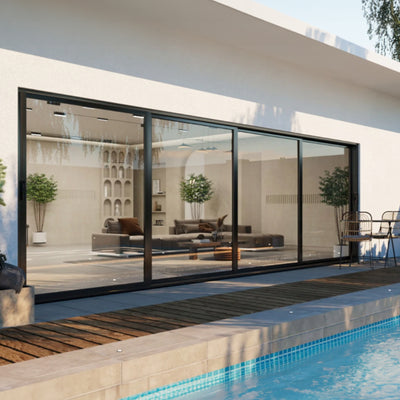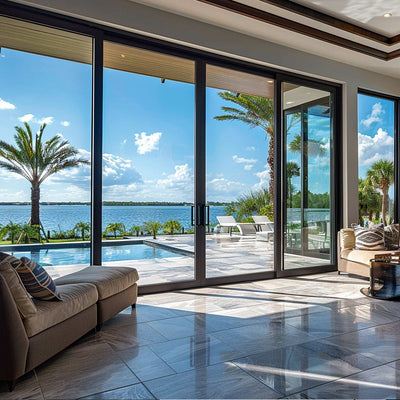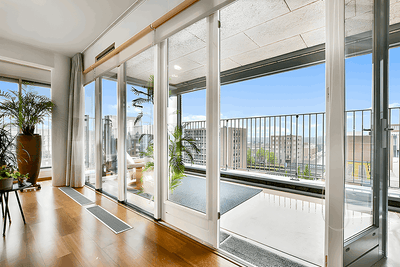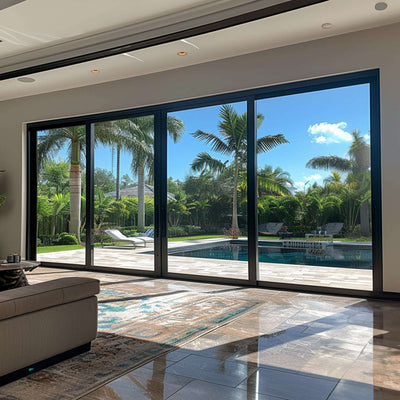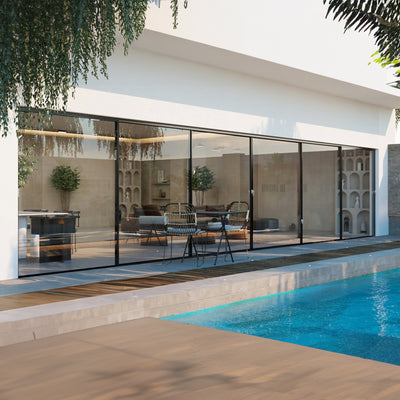The Real Cost of Peace and Quiet: Understanding Your Options
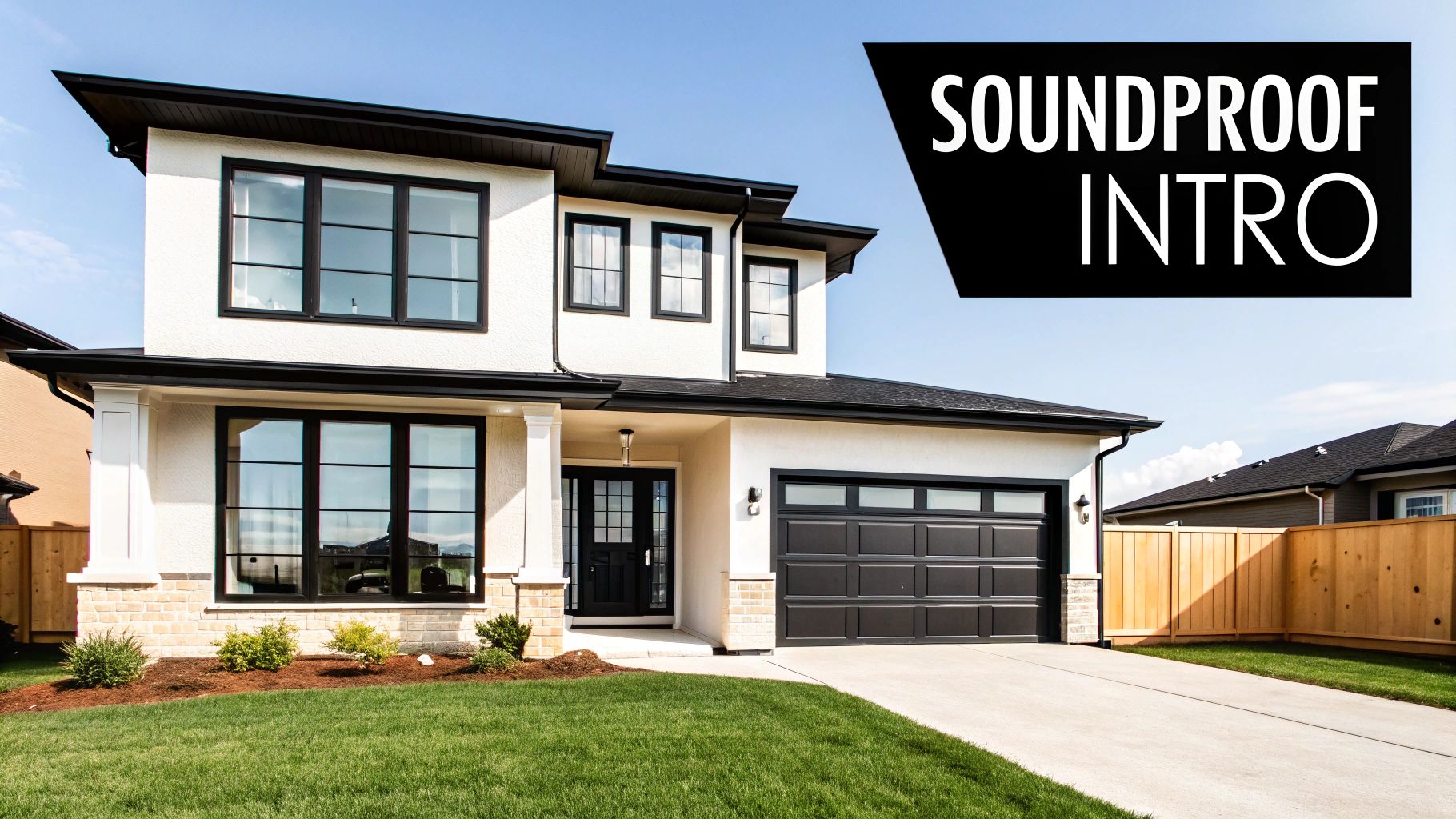
Seeking tranquility in your home? Understanding the true cost of soundproof windows goes beyond the initial price tag. It involves carefully evaluating the available choices and how they align with both your budget and your desire for a quieter environment. This means looking past surface-level marketing and delving into the specifics of each option.
Exploring Your Soundproofing Options
Let's examine the most common types of soundproof windows:
-
Laminated Glass: This option features two panes of glass joined by a special interlayer. This interlayer effectively absorbs sound vibrations, leading to a noticeable reduction in noise.
-
Double-Pane Windows: These windows consist of two glass panes with an air space between them. This space creates a sound barrier, although it's not as effective as laminated glass.
-
Triple-Pane Windows: By adding a third pane and a second air space, these windows enhance both insulation and sound dampening compared to double-pane windows. However, this added benefit comes with a higher cost.
-
Window Inserts: These present a budget-friendly alternative. They are installed over your existing windows. While they may not offer the same level of noise reduction as full replacements, they can still significantly dampen sound at a lower price point.
To help visualize the differences between these options, let's look at a comparison table:
Soundproof Window Types and Price Ranges Comparison of different soundproof window options and their typical price ranges per window.
| Window Type | Noise Reduction | Price Range | Installation Complexity |
|---|---|---|---|
| Laminated Glass | High | $800 - $1,500 | Professional Installation Recommended |
| Double-Pane Windows | Moderate | $300 - $800 | Professional Installation Recommended |
| Triple-Pane Windows | High | $1,000 - $2,000 | Professional Installation Required |
| Window Inserts | Moderate | $250 - $500 | DIY Friendly |
This table highlights the trade-offs between cost, noise reduction, and installation complexity for each window type. Laminated and triple-pane offer superior noise reduction, but come at a premium. Double-pane provides a balance between cost and performance, while inserts are a cost-effective option for moderate noise reduction.
What Impacts Soundproof Windows Cost?
Several factors influence the cost of soundproof windows. The type and size of the window play a significant role. On average, soundproof windows cost around $900 per window, with prices typically falling between $300 and $1,500. Window inserts, a more affordable solution, generally cost between $250 and $500 per window and can often be installed without professional help. Replacing your current windows with new soundproof versions, on the other hand, can range from $300 to $6,000 per window. This depends on the type and design. The frame material also affects the price. Vinyl frames are often pricier than aluminum or wood. Learn more about the specifics of soundproof window pricing at Angi. Furthermore, the degree of noise reduction you require also impacts the overall cost. A higher Sound Transmission Class (STC) rating, which indicates superior sound blocking, usually translates to a higher price.
Making the Right Choice for Your Needs
The ideal soundproofing solution hinges on your individual circumstances. Consider your budget, the level of noise you're contending with, and the type of windows you currently have. If budget is a primary concern and you're aiming for a moderate level of noise reduction, window inserts might be the perfect fit. However, if maximizing noise reduction is paramount, investing in laminated glass or triple-pane windows may be necessary. This investment can significantly enhance your quality of life, particularly if you reside in a noisy urban setting.
What You'll Actually Pay: Breaking Down Every Cost Factor
So, you're thinking about investing in some peace and quiet with soundproof windows. But how much will it really cost? It's important to understand the entire financial picture. This means going beyond the initial estimate and considering all the contributing elements. Many people overlook factors like window dimensions, frame materials, glass type, and the installation's complexity.
Window Dimensions and Material Costs
Larger windows naturally require more materials. This directly affects the final cost of soundproof windows. It's not only about the glass pane itself. The expenses add up with larger frames, specialized seals, and additional hardware. Soundproofing a small bathroom window, for example, is considerably cheaper than a large picture window in a living room. The frame material also has a significant impact. Vinyl frames offer great sound dampening, but they are often more expensive than wood or aluminum.
Glass Technology and Installation Complexity
The type of glass you choose significantly drives the cost. Triple-pane windows, known for superior noise reduction, are generally more expensive than double-pane windows. Technological improvements also play a role in the effectiveness and cost of soundproof windows. Laminated windows, made with two sheets of glass and a plastic interlayer, can reduce noise by up to 95%. However, they come with a higher price tag than double-pane options. Double-pane windows typically cost between $350 and $2,100 per window, while triple-pane windows range from $400 to $3,540. For a more cost-effective solution, consider innovative options like Indow window inserts, which offer up to 70% noise reduction. You can explore more on this topic at HomeAdvisor.
The complexity of the installation also adds to the overall cost. Difficult installations, especially in older homes or those with unique architectural details, often require specialized expertise and increased labor, pushing up the final price.
Regional Pricing and Quantity Discounts
The price of soundproof windows can vary depending on where you live. Installations in urban areas often carry higher prices due to greater demand and the challenges of working in densely populated locations. However, you can strategically reduce the per-window cost by leveraging quantity discounts. Soundproofing several rooms at once can lead to significant savings. This streamlined approach allows contractors to increase efficiency during installation and pass those savings on to the customer. You might also be interested in: How to master your window projects.
Understanding all these different cost factors empowers you to make smart decisions and avoid unforeseen expenses as you create a more peaceful home environment.
To help you get a clearer picture of the expenses involved, let's take a look at a detailed cost breakdown:
Complete Soundproof Window Cost Breakdown: This table provides a detailed breakdown of costs involved in soundproofing windows for residential properties.
| Cost Component | Percentage of Total Cost | Average Cost Range | Notes |
|---|---|---|---|
| Window Type (Double vs. Triple Pane) | 40-60% | $350-$3,540 | Triple-pane windows are typically more expensive than double-pane. |
| Frame Material (Vinyl, Wood, Aluminum) | 15-25% | Varies based on material and size | Vinyl frames tend to be the most expensive. |
| Installation Labor | 20-30% | Varies based on complexity and location | Complex installations and urban locations can increase labor costs. |
| Additional Materials (Seals, Hardware) | 5-10% | Varies based on window size and type | Larger windows require more materials. |
As you can see, the window type and frame material have the greatest impact on overall cost. Labor and additional materials also contribute a substantial portion of the total expenses. Keeping these factors in mind will allow you to plan and budget accordingly.
DIY vs. Professional Installation: Where to Save and Splurge
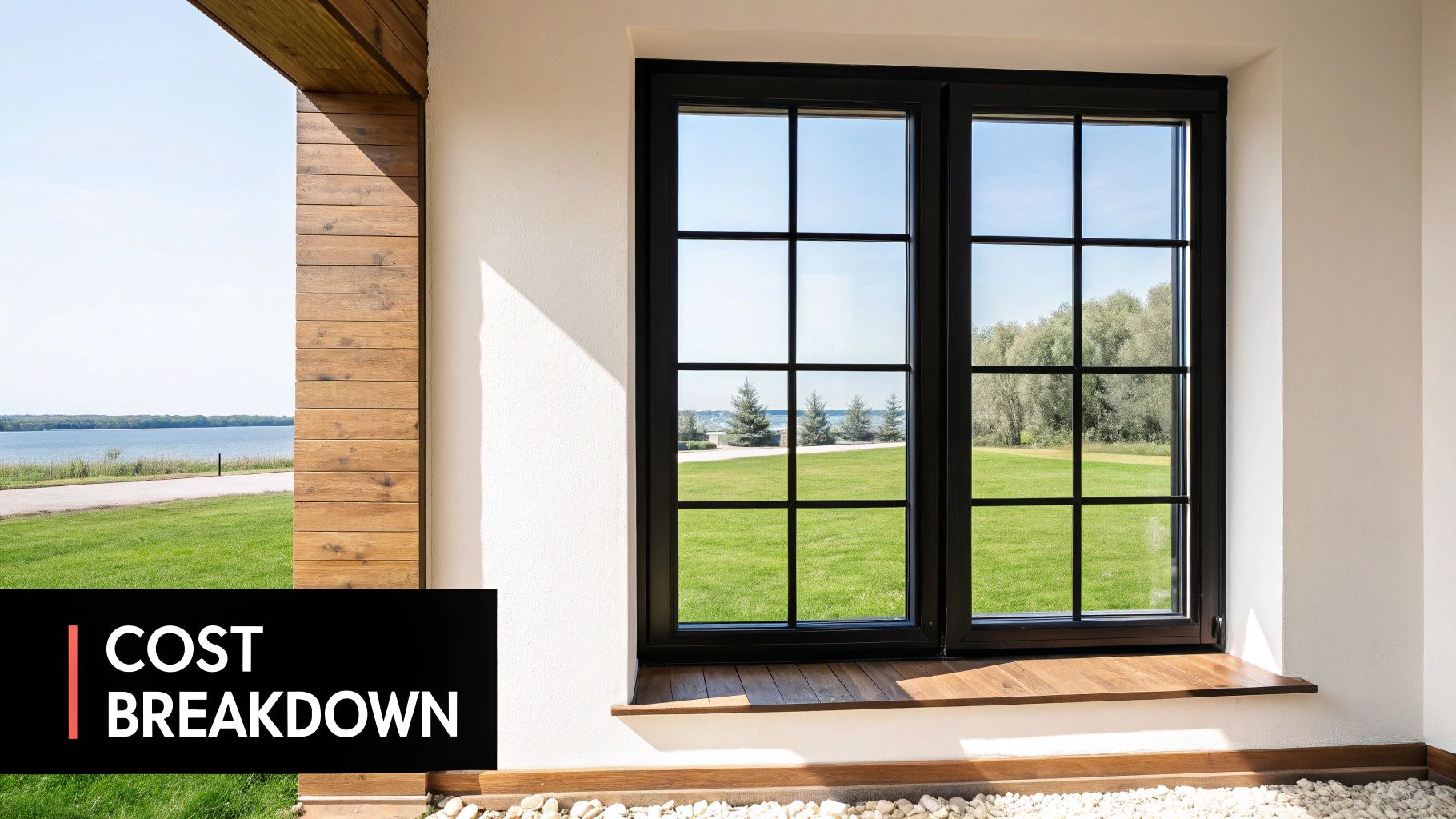
While online tutorials make DIY soundproofing tempting, it's important to balance potential savings against risks. Compromised performance and unexpected costs can easily offset initial savings. Understanding which solutions are truly DIY-friendly and where professional expertise shines is key to making smart decisions about your soundproof windows cost.
When DIY Makes Sense
Some soundproofing methods are perfect for homeowners. Window inserts, for instance, are often a manageable DIY project. Designed to fit over existing windows, they offer noticeable noise reduction without specialized tools or extensive construction knowledge. Similarly, applying weatherstripping to seal air gaps is a simple, inexpensive DIY task that improves sound insulation. For further DIY ideas, check out: How to master your window projects.
The Hidden Costs of DIY
Tackling complex soundproofing projects yourself, however, can lead to unforeseen expenses and subpar results. Improper window installation can cause structural damage, resulting in air leaks and reduced sound dampening. The need for specialized tools can also inflate costs, negating some DIY savings. Moreover, incorrect installation can void warranties, leaving you without options for repairs or replacements.
The Value of Professional Installation
Professional installation guarantees proper sealing, maximizing the noise reduction of your soundproof windows. This expertise is especially important for laminated glass or triple-pane windows, where precise installation is critical. While the initial cost may be higher, professional installation often prevents costly rework later and protects your warranty.
Time Investment and Performance Trade-Offs
DIY soundproofing can be time-consuming. Researching, gathering materials, and installing can take much longer than expected. Even small installation errors can compromise the long-term performance of your soundproof windows. A tiny gap can negate the benefits of even the most advanced window. Professionals, however, have the experience and equipment for quick, effective installation.
Impact on Property Value
Professional installation can boost your property value. Quality soundproofing attracts buyers and increases your home's desirability. This added value offers a return on investment beyond noise reduction. Conversely, a poorly executed DIY job can detract from your home's appeal, potentially lowering its market value.
Beyond Noise Reduction: The True ROI of Soundproof Windows
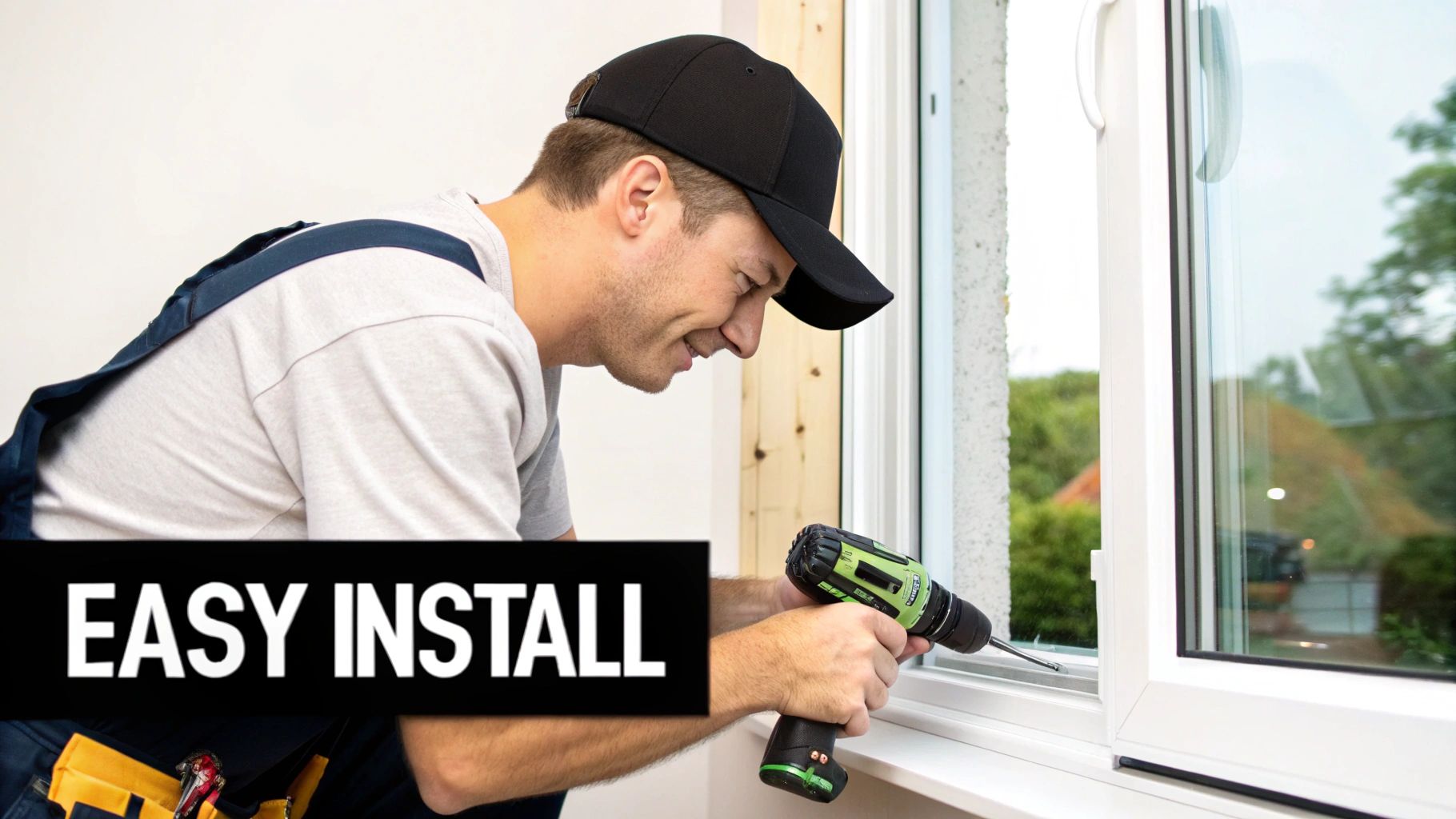
Soundproof windows offer much more than just peace and quiet; they're a smart investment that can yield substantial returns. While the initial cost might seem high, the long-term benefits reveal their true value. These advantages extend beyond simple noise reduction, positively impacting your property's value, energy efficiency, and even your overall well-being.
Increased Property Value
In today's real estate market, soundproof windows are a highly sought-after feature. Real estate agents often emphasize them as a key selling point, boosting a property's appeal and market value. Homes with features that prioritize comfort and enhance quality of life are especially attractive to buyers.
This is particularly relevant in bustling urban areas or near busy roads where noise pollution is a constant concern. Soundproof windows offer a practical solution, making your property stand out from the competition and potentially commanding a higher resale price.
Energy Savings
Soundproof windows also contribute to a more energy-efficient home. Their construction, designed to block sound, also provides excellent insulation against temperature fluctuations. This translates to less reliance on your heating and cooling systems, resulting in lower energy bills and a smaller carbon footprint.
Over time, the insulation provided by soundproof windows can lead to substantial savings, helping to offset the initial investment cost.
Health and Well-being
The negative impact of noise pollution on health is often overlooked. Constant exposure to noise can contribute to stress, disrupt sleep patterns, and hinder concentration. Soundproof windows create a peaceful sanctuary, shielding you from unwanted noise and fostering a healthier, more relaxing home environment.
This improved quality of life can also lead to increased productivity, particularly for those who work from home. Some individuals have reported significant productivity gains after installing soundproof windows in their home offices.
Calculating Your Break-Even Point
The return on investment for soundproof windows varies depending on individual circumstances, property type, and the local noise environment. However, considering the potential increase in property value, energy savings, and improvements to health and productivity, it's possible to estimate a break-even point. The reduction in energy costs alone can significantly offset the initial cost over time.
Furthermore, the global market for soundproof windows is experiencing rapid growth. As of 2025, the global renovation soundproof glass windows market was valued at $4,597 million and is projected to expand at a CAGR of 8.4% until 2033. This growth underscores the increasing awareness of noise pollution and the growing demand for effective soundproofing solutions. Find more detailed statistics in this Market Report Analytics. You can also explore this product range.
By considering these long-term benefits, it becomes clear that soundproof windows are not just an expense, but a valuable investment in your property, your well-being, and your future.
Budget-Friendly Alternatives That Actually Work
Not everyone can afford premium acoustic windows, and sometimes, a full window replacement isn't even necessary. This section explores effective, budget-friendly soundproofing alternatives, helping you understand what truly delivers results. We'll examine options like window inserts, acoustic curtains, weatherstripping, and secondary glazing, evaluating their effectiveness in different noise situations.
Exploring Cost-Effective Soundproofing Solutions
For a noticeable reduction in the cost of soundproof windows, several alternatives can make a real difference:
-
Window Inserts: These affordable panels fit snugly inside your existing window frames, creating an extra sound barrier. They're an especially attractive option for renters or those on a budget.
-
Acoustic Curtains: These specialized curtains are made from dense, sound-absorbing materials. While they might not block all noise, they can effectively soften sound and reduce echoes.
-
Weatherstripping: This straightforward fix seals air gaps around windows, which helps prevent sound leakage. It's a cost-effective way to boost your existing windows' soundproofing capabilities.
-
Secondary Glazing: This involves adding a second pane of glass to your current window. It forms an air gap that helps block sound, offering similar benefits to double-pane windows, but at a lower cost.
Combining Solutions for Maximum Impact
Strategically combining these budget-friendly solutions can create surprisingly effective noise reduction. For example, pairing window inserts with acoustic curtains can significantly dampen both outside noise and echoes inside. Furthermore, weatherstripping improves the performance of both of these methods by sealing any remaining air gaps. Learn more in our article about How to master your window projects. This layered approach lets you customize your soundproofing based on your particular noise concerns and budget.
Targeting Specific Noise Problems
Different solutions are better at handling specific noise issues. Traffic noise, with its low-frequency rumble, often responds well to window inserts or secondary glazing. Neighbor sounds, which tend to be higher frequency, can be effectively reduced by acoustic curtains paired with weatherstripping. Even aircraft noise can be lessened by combining multiple solutions, leading to a more peaceful home environment.
Measuring Your Noise Reduction Improvement
You can measure your soundproofing success using readily available tools like sound level meters or even smartphone apps. These tools quantify the noise reduction in decibels, giving you a concrete measure of your improvement. This data can help you decide whether these budget-friendly solutions are meeting your noise reduction goals before you consider more expensive options.
Evaluating Long-Term Value
While these alternatives may not offer the same level of soundproofing as high-end acoustic windows, they can substantially reduce noise at a much lower price. This makes them a smart starting point if you’re looking to improve your home’s acoustics without a large investment. Remember to consider installation costs, which can vary depending on the project’s complexity. By carefully evaluating your needs, researching options, and measuring your results, you can create a quieter home without emptying your wallet.
Insider Tips: Getting Maximum Value for Your Investment
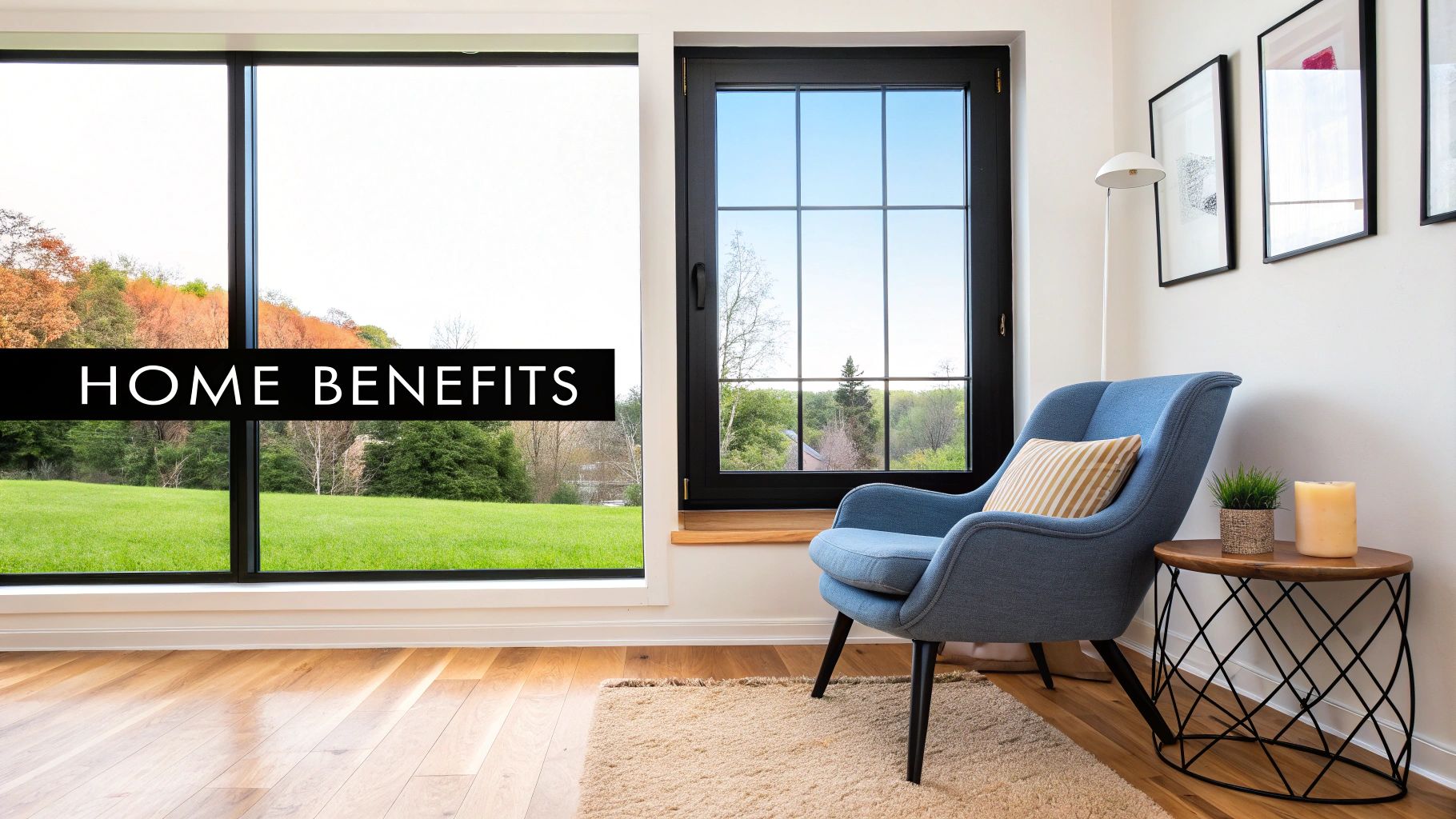
Investing in soundproof windows is a big decision. Getting the most for your money is key. This section offers smart strategies for saving money without compromising quality. From picking the right time to buy to negotiating like a pro, these tips will help you maximize your soundproof window investment.
Strategic Timing and Comparing Quotes
When you buy can significantly impact the final cost. Contractors often offer discounts during the off-season, typically late fall or winter. This is a prime opportunity to snag a deal. Also, getting quotes from multiple contractors is essential. Don't just look at the price tag. Scrutinize each quote, including the materials, installation process, and warranty.
One contractor might have a lower initial price but use subpar materials. Another might have a higher upfront cost but offer a better warranty. A careful comparison helps ensure you get the best bang for your buck.
Effective Negotiation and Incentives
Negotiation is a valuable skill. Don't hesitate to negotiate the price, especially for multiple windows or a larger renovation. Many contractors are open to negotiation, particularly during slower periods. Also, look into energy rebates and tax incentives. Many areas offer programs to help offset the cost, making soundproof windows even more appealing. Some of these programs are less publicized, so research is key to maximizing savings. Read also: How to master your window projects.
Identifying Red Flags and Warranty Protection
Watch out for red flags. Unusually low quotes, vague contracts, or poor communication can signal potential issues. These might indicate hidden costs or future quality problems. Carefully review the warranty. A solid warranty protects your investment and provides coverage if problems arise. This offers peace of mind and safeguards your investment.
Specification Differences and Longevity
Small differences in specifications can significantly impact performance and how long your windows last. For example, the type of sealant used around the frame affects sound blocking and weather resistance. The quality of the hardware influences durability and lifespan. These details may seem small, but they greatly affect the long-term value. Investing in better components upfront can save you money on future repairs and replacements.
By following these tips, you can confidently purchase soundproof windows. This ensures you get the most value and enjoy the peace and quiet you deserve. Ready to create a tranquil home?
Get a free quote from Gladiator Window and Doors today! Visit our website to learn about our high-quality soundproof windows and doors. We offer the lowest prices in the USA, backed by our Best Offer Guarantee. Don't settle for less – experience the Gladiator difference!








